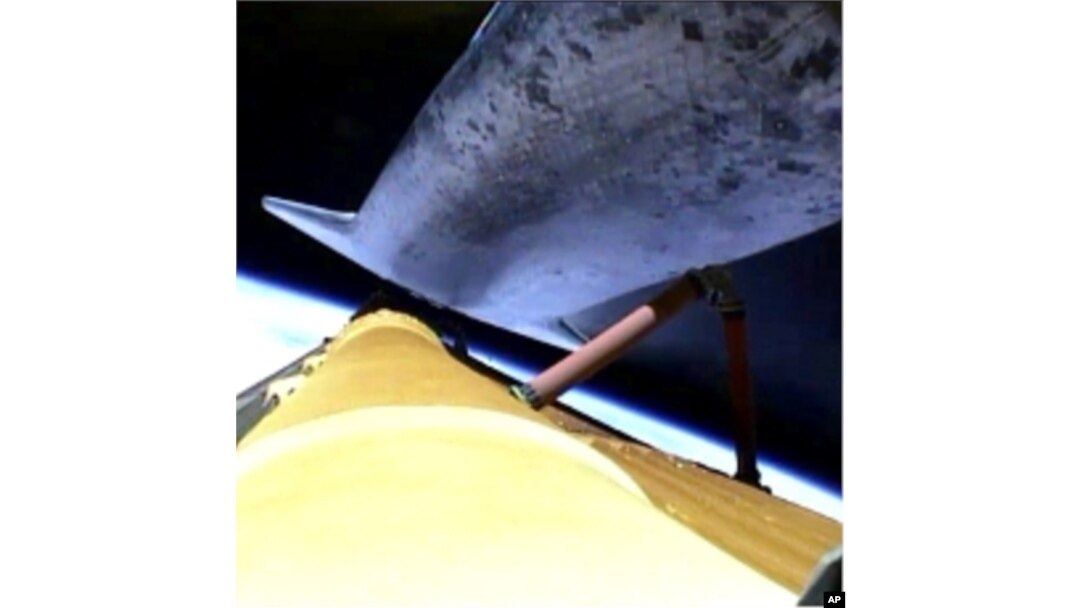The U.S. space shuttle Atlantis blasted off Friday on a mission to the International Space Station (ISS), the 135th and final flight of the 30-year-old space shuttle program.
The space agency NASA said as many as 1 million people were gathered in and around the Kennedy Space Center in Florida to watch the historic liftoff. Launch control called the space mission "a sentimental journey."

US Space shuttle fan sports her "shuttle socks" ahead of Atlantis launch at Kennedy Space Center in Florida, July 8, 2011
The shuttle's four-member crew will deliver supplies, spare parts and science experiments to the International Space Station during its 12-day mission.
The space shuttles have served as the complex workhorses of the U.S. manned space program for the last 30 years, playing a key role in the building and operation of the International Space Station (ISS) and performing other important missions. The end of the shuttle program leaves the United States without its own manned spacecraft.

The space shuttle Atlantis releases its fuel tank for the final time, July 8, 2011
NASA is ending the shuttle program to concentrate resources on deep-space exploration. The agency is working with several commercial U.S. aerospace companies to develop vehicles to replace the shuttles. Until then, Russia's Soyuz spacecraft will ferry U.S. astronauts to and from the ISS, while Russian, European and Japanese cargo rockets will continue their resupply and waste disposal missions to the station.
There were four astronauts on Atlantis for Friday's launch - Commander Chris Ferguson, Pilot Doug Hurley, Mission Specialist Rex Walheim and Mission Specialist Sandra Magnus. All four have flown on previous shuttle missions.
NASA Documentary on Shuttle Program, video footage of Endeavour ISS docking
|
SPACE SHUTTLE PROGRAM FACTS
|

